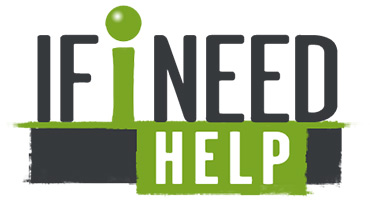IF I NEED HELP FAQs
What is your solution to special needs challenges...?
If I Need Help wearable iD:
- Is very sturdy and reliable. Our son has a patch on every shirt. He always wears these shirts.
- If he were to be lost he would be able to be iD'd from this wearable iD.
- We have a wide array of products for people with different sensory needs. Many people do not want to stick out when at school or in everyday settings so our shoe tag would be more subtle and helpful for them.
- Other people might run away when not wearing clothing. Our temporary tattoos can help them.
- We also have things for high functioning people such as dog tags, keychains, and iD cards that they would choose to show only when they are having communication issues, such as being pulled over by the police or getting on the wrong bus and not being able to communicate in the unexpected real world situation.
- Our products are very affordable. Average cost for wearable id is typically only $10 to $15 with no fees.
- All information can be updated in real time by the caregivers as the situation changes.
What about client confidentiality?
There are two parts to our free registry. The public profile, and the confidential question and answers section.
Public profile:
- This is the part of the registry that would be visible when scanned or entered on the website.
- We tell people to not use last names or addresses, and to only put the information they would be comfortable with having a finder know to help their loved one in a critical situation.
- This information can be updated in the moment.
Confidential question and answers:
- This is the personal information of the user.
- It is caregiver controlled and not seen when the wearable code is scanned or entered on the website.
- This is the type of information that first responders would need to know in a critical missing, and can be updated in real time by the caregiver.
- The caregiver would have to either print or email it to whomever they decide to share it with in an emergency.
- This information could also be shared with our growing national police network if the caregiver chooses to opt in.
Can predators use information obtained by scanning the wearable iD or entering the unique code on the website?
It would be very difficult.
- To scan a stranger would be very visible and stand out like a sore thumb.
- They would need to get within inches of the code on the wearable iD.
- Most of the people that are vulnerable to this would be low functioning and would always be with a family member or aide. If not with an aide the wearer is lost, in danger, and needs a finder to have the information to help them and get them home safely.
- As a parent of a child with autism the chance of my child being helped in an emergency by having this information available far outweighs the very low likelihood of it falling into the wrong hands.
Do we need affordable wearable iD and a free caregiver controlled special needs registry? We already fund Behavioral Therapy...
Yes. Therapy is often a long and gradual process.
- Our 15 year old son Jay has been receiving ABA for almost 11 years. Even though he has always improved with therapy it took almost this whole time for his elopement risk to diminish, but not entirely elimintaed. He or others like him could die or be greatly harmed while waiting for the behavioral elopment goals to be met without wearable iD.
- What if they are in the community and get separated from their caregiver by accident. This can happen to anyone, but can be devastating to someone with communication issues.
- With intense speech therapy Jay has gone from nonverbal to low verbal while this is life changing in itself, he still cannot really communicate in an emergency. The main time he was lost he was not trying to elope. At 6 years old after drop off at school his aide forgot to bring him inside with the class. He was standing by the fence scared to death. Anything could have happened to him. A mom passing him knew who he was and brought him inside. We were lucky and as a result started If I Need Help.
Who can use this system?
Anyone can use our system.
- Most of our members though, have communication issues such as with people with Autism, Down Syndrome, Epilepsy, Dementia, Alzheimer's
- Also those with other issues (Diabetes, PTSD, etc.) that hinder them from being able to self advocate during a critical moment.

